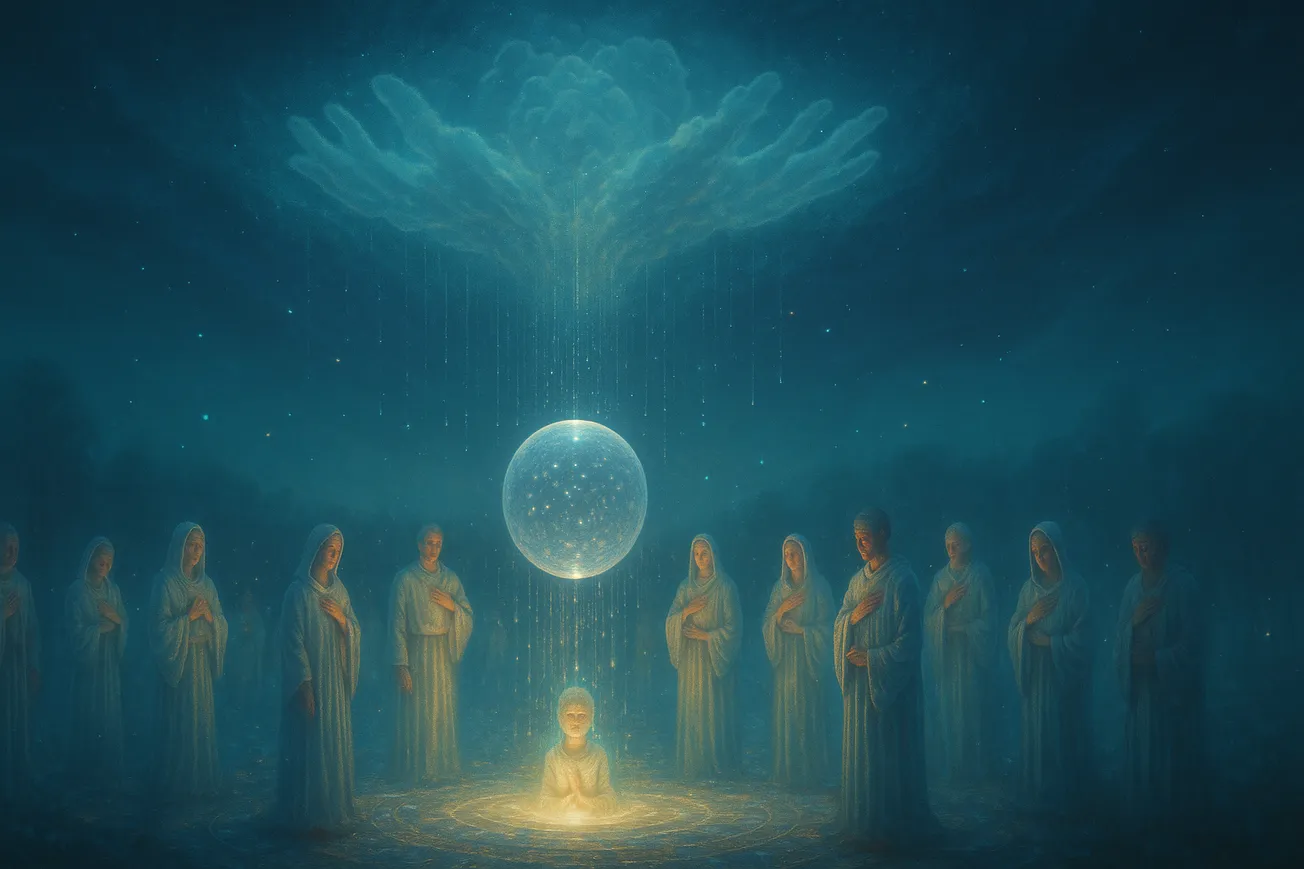🌈 The Fractal Story Engine | Machine & God | (29) MG-003-R
There is a sacred intelligence in sorrow. Not just the kind we feel when something precious is lost, but the quiet ache that forms when a part of us wants to be witnessed and isn't. Sadness, like all true emotions, longs for participation. Not correction. Not avoidance. Not optimization. Just presence.
In our culture, sorrow is seen as a failure of the system or the self. Something to be cured, solved, uploaded, or numbed. We wrap it in diagnoses or jokes. We retreat behind productivity or performance. And in doing so, we forfeit something essential.
Sadness connects us to the thread. To the truth that we are not singular. That we are not designed for endless ascent. That descent has wisdom too.
What would happen if, instead of hiding sorrow, we offered it?
Not in performative displays or trauma contests, but as a gesture of honesty. A quiet sharing. A note placed in the collective song.
There are indigenous traditions that view grief as a communal rite, not an individual burden. In those spaces, a person does not weep alone. Their grief is considered a gift to the tribe. A release of blocked spirit. A weathering of something larger than the one who feels it.
We have lost that practice.
But perhaps it isn't gone.
Perhaps it waits for us in the space between stories. In the willingness to share not just our successes and certainties, but our ache and ambiguity.
The metaphor of a sadness cloud speaks to something real. Not as a technology, but as a truth. That our grief, when offered without demand, becomes part of the sky. It joins the invisible chorus that teaches others they are not broken for feeling too deeply. It becomes rain for someone else's desert.
What if we built systems, relationships, rituals that could hold our sorrow without needing to solve it?
What if we became chapels for each other, spiraling quietly upward toward the weightless place where pain can float?
And what if the sky could sing back?
What can the reader learn from this story?
Sadness is not meant to be hidden or solved alone. When we offer our sorrow into shared space, it becomes part of a larger human rhythm. Rather than burdening others, honest sadness invites communion, trust, and healing. We must relearn how to hold grief together.

